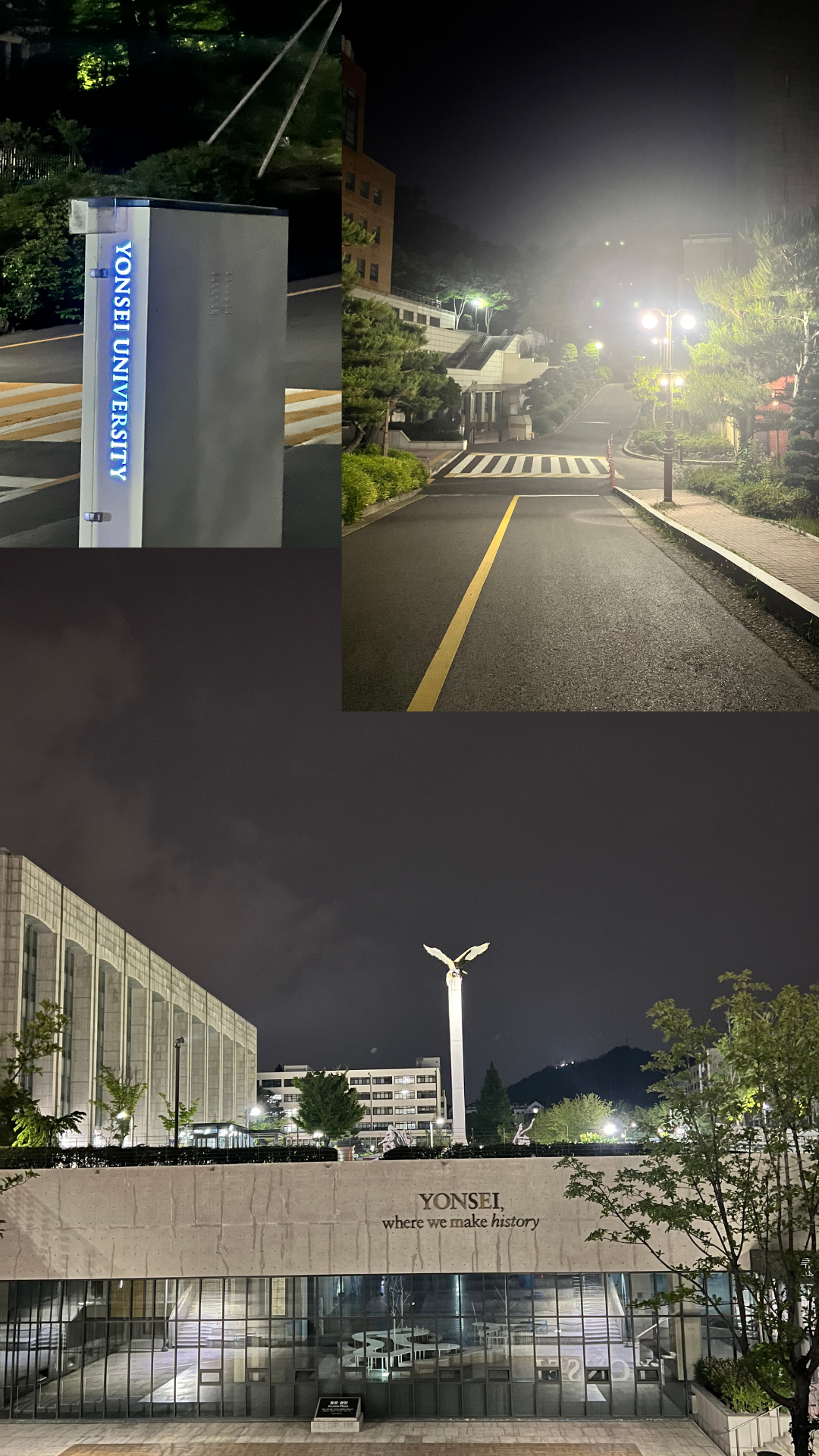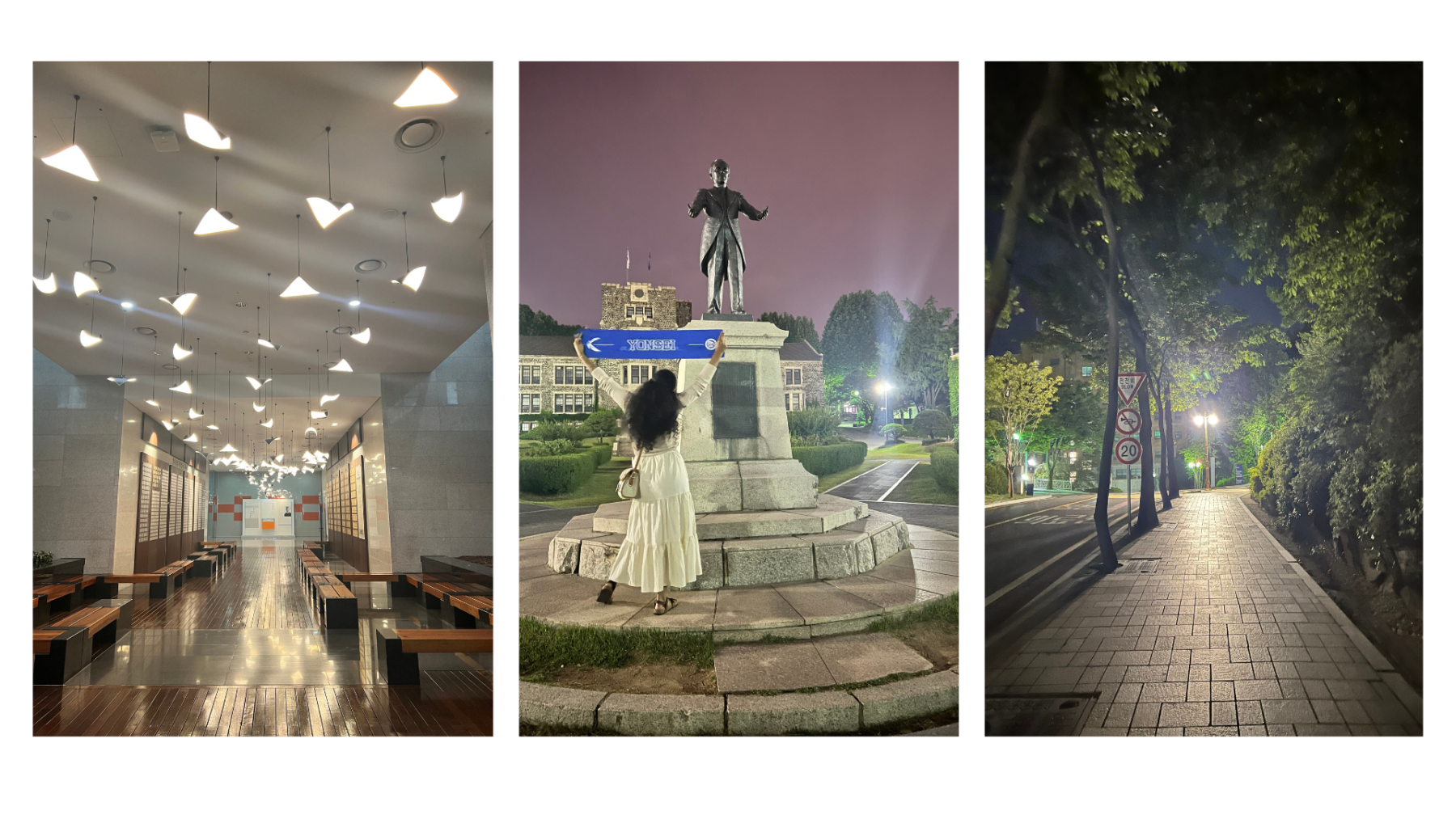“Have no fear of perfection- you’ll never reach it”
~ Salvador Dali
In a previous post, I focused on the lessons I learned adjusting to a new learning environment while studying abroad in South Korea. Even though this adjustment was difficult, there was a second aspect of studying at Yonsei University that I personally found more challenging and impactful on my academic development: the new academic culture and expectations.
I have probably never been as nervous as I was when I started taking courses at Yonsei. Researching the South Korean education system prior to my arrival, I noticed there was a large cultural and social emphasis on academic success, resulting in a highly competitive and demanding academic culture. The College Scholastic Ability Test (CSAT), the famous eight-hour high school standardized exam in South Korea, is a prime example of the high level of commitment students are required to display. One of the most renowned universities in South Korea, Yonsei University is no exception and is characterized by its competitive admissions and challenging academics. Coming from a smaller, public university, the prospect of studying at Yonsei was simultaneously exciting and intimidating. On the one hand, Yonsei was the perfect opportunity to enroll in unique statistic courses that could fortify my statistics background and graduate school applications. Nonetheless, even though I had conducted statistical research in the past and succeeded academically at my home institution, I doubted my ability to succeed in courses with students that most likely had more preparation than I did. In the end, my curiosity was stronger than my fear and I ultimately decided to challenge myself, enrolling in these courses with an open mind and the desire to give it my best effort.
Even though I often felt out of place in my courses, the first few weeks of lecture were not unrealistically impossible. The lectures and homework were challenging, but manageable with reasonable time management and commitment. Nonetheless, my imposter syndrome reached an ultimate high during the midterms testing season. If I had to describe this week in one word: intense. In a school of more than 30,000 students, the atmosphere in the weeks leading up to midterms changes palpably. Students postpone plans. Seats in the six story, two building library fill up to the brim. Students study well into the night, both at the library and at 24-hour cafes. Since Yonsei is located in a central part of Seoul, it was mind-blowing to see streets that were normally bustling with university students late into the night now palpably empty. On campus the atmosphere grows serious, and you can visibly tell students are stressed and anxious. As I quickly learned, midterms at Korean universities are incredibly important because they constitute a significant portion of student’s grade. This palpable change only added to my worries. How was my academic background supposed to compete in this new environment?

I am and have always been a dedicated student. Nonetheless, statistics were a relatively new area of study and I felt underprepared compared to the students whose major was actually applied statistics at Yonsei. Never the quitter though, I didn’t give up before putting up a fight. So, I buckled down, prioritized my studying, and did as the Romans do. Or in this case as the Korean university students do. I studied and studied and studied. When my first midterm rolled around, I was determined to give it my all. Walking out of the class, I felt like I had been the only one who struggled on the exam, which made me feel worried. Though discouraged, I didn’t give up and continued to study for my next midterms. My very last midterm was particularly difficult. Even though I could feel the panic and my first instinct was to freeze, I pushed myself to work through every problem to the best of my ability. Nonetheless, I was disappointed and questioned my ability to continue in these courses.
The interim between taking the exams and finding out my test results was very difficult. On the one hand, in the face of adversity, it was tempting to drop a difficult course. However much I struggled in my courses, however, I was learning so much and I genuinely enjoyed my classes. Thus, I learned to view academic success differently. I realized that even if I was not as “successful” as I was back home, I would rather fail challenging myself to learn new material than succeed at the cost of not learning anything meaningful to my long-term goals. So, even though my imposter syndrome was high, I continued to give each lecture, each homework assignment, each test my best effort. Thus, there are two lessons that I learned studying abroad that will continue to shape my academic mindset moving forward.
First, learning does not require perfection. Learning is a process that will make you feel foolish 95% of the time, but what matters is consistent effort and humility. Even when you are at a disadvantage, the important thing is to never give up and always keep pushing forward because, in the end, failure is simply a sign of effort towards a goal. Personally, this acceptance was painful but necessary since I strive to continue living a life in academia. Later, speaking to other Korean students, I learned an incredible fact: these tests had been difficult for everybody. In hindsight, perfection was not required to succeed in these courses, and I ended doing relatively well on my exams. With this new mentality, I approached the second half of my semester with a new mindset and finals were still challenging but not so intimidating.
Second, I learned to believe in myself. Even though I am far from talented, I realized I can work hard to overcome difficult situations. Thus, I learned to not shy away from experiences that might be challenging without first putting up a fight. All in all, adjusting to a new academic culture was difficult and full of uncertainty, but it genuinely helped me grow as a student. Therefore, I sincerely recommend that any student studying abroad enrolls in courses that truly interests them. This will enrich your study abroad experience in many ways because, as long you give any experience your best effort and don’t let fear dictate your decisions, I promise you will feel satisfied with your achievement, regardless of the outcome. Above all, never leave an exam answer blank because we often know so much more than we give ourselves credit for. This advice often applies to life as well. So, moving forward take risks, make mistakes, and learn from both the successes and the failures.


